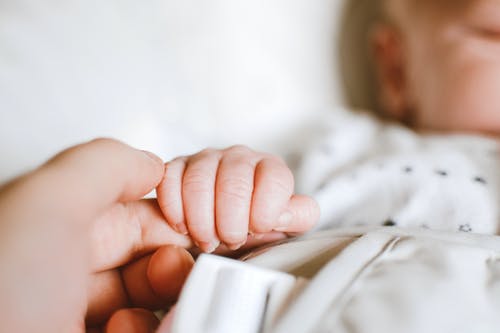Table of Contents
Sleep Apnea Of Children. Why it Occurs and What to Do?
Cessation of breathing in a sleeping child, or sleep Apnea, can be due to a variety of reasons, ranging from age-related physiology to serious diseases caused by genetic mutations.
Depending on the nature of the disorder, children sleep Apnea:
- Not dangerous to the health of the baby, and therefore does not require any measures;
- Threatens the child’s life and / or leads to mental retardation, frequent headaches during wakefulness, the development of hyperactivity syndrome;
- Disappears by itself or after proper treatment
Below you will find more information about the etiology of children sleep apnea, the possible consequences and current approaches to solving the problem.

Infant Apnea: Why it occurs? Is it dangerous?
Due to insufficient morphological and functional development of the respiratory system of a child born prematurely, breathing stops for 20 or more seconds (pauses are even shorter) are often recorded in him, accompanied by a slowdown in the heart rate (bradycardia) and a decrease in the level of oxygen in the blood.
Apnea in premature babies is one of the most common disorders that requires a newborn in the intensive care unit under constant medical supervision.
The earlier the child was born, the more often episodes of apnea occur and the longer their duration.
The danger of apnea of prematurity is not only in the risk of sudden death due to the fact that breathing does not resume, but also in insufficient oxygen supply to the brain tissue. A set of special measures eliminates this problem.
As a rule, the respiratory system and the mechanisms of regulation of its work in newborns born prematurely are fully formed and rebuilt by 37-40 weeks from the day of conception.
That is, to the moment when the child would have to be born, if the mother informed him. However, in deeply premature infants, apnea often occurs in a later period.
Sleep Apnea episodes in term babies under one year old also occur and may be a normal variant.
In the first year of life, short-term respiratory stops during night sleep should not alert parents if:
- Their number does not exceed one episode per hour;
- The baby breathes effortlessly, deeply and evenly;
- Apnea lasts no more than 5 seconds;
- The child does not show anxiety, his heartbeat does not slow down, and blue mark do not appear on the skin
Genetic pathologists are one of the causes of childhood Sleep Apnea
More frequent and prolonged episodes of sleep apnea in children under one year of age, born on time, are usually associated with certain genetic abnormalities:
- Congenital central alveolar hypo ventilation syndrome
- Spinal muscular atrophy,
- Prader-Willi syndrome etc.
Genetic disorders that provoke Apnea also occur in premature babies, in this case it is very important to correctly determine the cause of respiratory arrest.
Perhaps, in the not so distant future, genetic engineering will give doctors the opportunity not only to timely detect, but also to correct genetic abnormalities in the fetus during pregnancy or after the birth of a child. However, at present, the “wrong” set of genes cannot be “fixed”.
And pathologists such as, for example,Congenital central alveolar hypo ventilation syndrome, which cannot be corrected with drugs, can cause the death of a child during sleep (the so-called Undine syndrome), which requires special measures and supportive therapy throughout life.

Newborn babies with Congenital central alveolar hypo ventilation syndrome are usually operated on, during which a hole is formed in the trachea and a special tube, a tracheotomy, is installed.
During sleep (and in severe cases and during wakefulness), a ventilator is connected to it. After reaching the age of 6-7 years, the tracheotomy can be removed, and the child can be transferred to non-invasive mechanical ventilation.
Solution for Premature Babies who Experience Apnea
Nevertheless, if you notice that during sleep your baby stops breathing for a certain period of time, it is best and most correct to find an opportunity to undergo a special examination – polysomnography.
Or get an appointment with a specialized “sleep specialist” – a child somnologist who will treat your baby after the following research.
During this research
- The parameters of cardiac and brain activity are recorded;
- Pulse oximetry, ECG, EMG, EEG are performed;
- Screening of body positions, chest movements is carried out.
Based on the results of the data obtained, treatment or supportive therapy is prescribed. It is also possible to conduct research at home using a portable device with sensors.
One of the most urgent and fastest methods is the treatment of apnea using CPAP devices made in Germany.
Neonatologists cope with apnea of premature babies with the help of CPAP machines and masks for babies working according to special programs…
Sleep Apnea Of Children Other Solutions
Recently, however, more and more neonatologists, including leading American specialists, are inclined towards the possibility of the initial use of non-invasive methods of ventilation in children with mild forms of mutations.
Fortunately, modern, compact, silently operating, intelligent devices, equipped with special masks, easily adaptable to the features of the structure of the face of a particular baby, allow you to solve this problem.
Apnea in children with genetic diseases is very dangerous, but with the right approach, its consequences can be minimized, and the child’s life can be made as comfortable as possible.

Fortunately, hereditary and other gene abnormalities that lead to respiratory arrest in children during sleep are extremely rare.
What can not be said about such a common diagnosis as adenoids. Pathologically enlarged pharyngeal tonsils interfere with the passage of air through the respiratory tract of a sleeping child, as a result of which he snores, breathes convulsively and unevenly, with stops.
Such children are diagnosed with obstructive sleep apnea syndrome – OSAS, doctors are involved in their treatment.
Obstructive sleep Apnea in children with Adenoids
Almost all children have adenoids, however, with a small size (first degree), they practically do not interfere with the passage of air through the respiratory tract of a sleeping child, and OSAS does not occur.
At the same time, obstructive sleep apnea syndrome of varying severity develops in 50% of children with larger adenoids
. In the second degree, at the time of the deep phase of sleep, the hypertrophied tonsils close more than half of the lumen of the airways, in the third or fourth, they completely overlap.
Always remember that your snoring baby with adenoids has a 50% risk of stopping breathing permanently one night!
Therefore, children’s snoring, especially irregular ones, accompanied by a wheezing breath, increased chest movements and its sinking, periodic stops in breathing are a reason for an immediate appeal to a specialist for advice and special examination.
In general, when treating children with adenoids,doctors adhere to the following rules:
Grade 1 – no removal required.
Grade 2 – an examination is needed to determine the presence of OSAS and its severity.
3-4 degree – operation is indicated.
OSAS can also develop in children with a pathological structure of the airways, for example, with a curvature of the nasal septum, “cleft palate”, hypertrophy (enlargement) of the root of the tongue, etc.
In this case, as with severe adenoids, they resort to surgery.
Sleep Apnea Of Children Conclusion
If your child has episodes of respiratory arrest during the night’s sleep, do not panic, but see a doctor who diagnoses and treats sleep apnea in children.
He will determine the severity and severity of the problem, develop observation tactics, and, if necessary, prescribe medication and / or hardware treatment, and send for surgery.
Sleep Apnea Of Children Final Words
Even in those rare cases when it is impossible to completely eliminate the cause of infant sleep apnea, the child can and should be helped.
Understanding the nature of the disease and choosing the right way to eliminate the associated breathing disorders allows:
- Avoid the risk of sudden death;
- To provide the most comfortable conditions for the life and development of the baby.
Read more about all kinds of CPAP Machines HERE…

